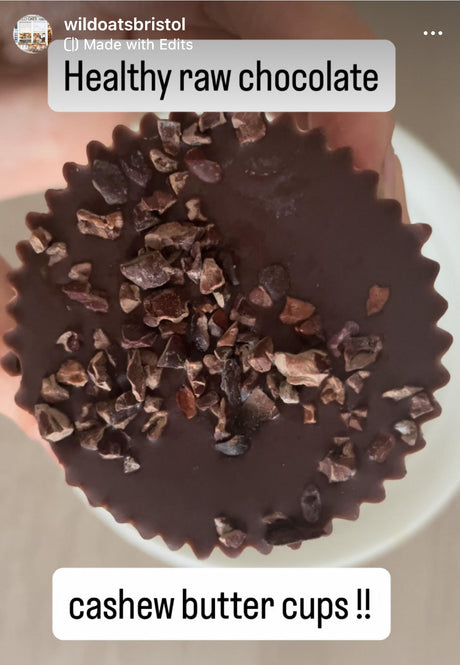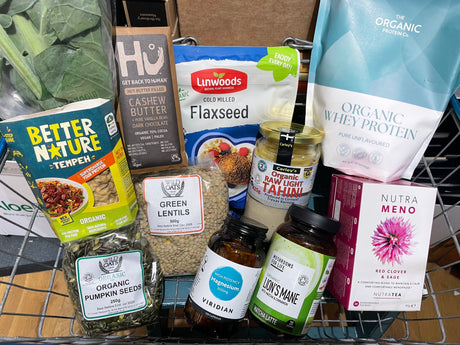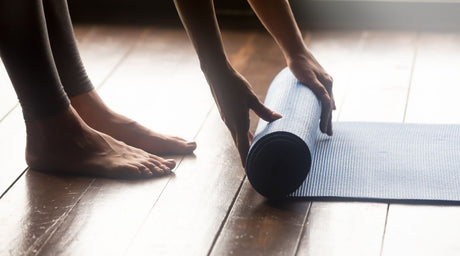As spring arrives and we start enjoying more time outdoors, the season also brings an unwelcome guest for nearly one in four people: hay fever. With rising pollen levels, this time of year marks the beginning of spring allergy season, and for many, that means the return of sneezing, itchy eyes, and other frustrating hay fever symptoms.
While it’s difficult to completely avoid allergens in the air, there are practical steps you can take to reduce your exposure and find some much-needed hay fever relief. Whether you're sensitive to tree pollen, grass, or other common triggers, a few smart habits can make a big difference.
We've had a surge of questions from people struggling with everything from itchy eyes and blocked noses to scratchy throats — classic signs that pollen levels are high and allergy symptoms are in full swing.
What are the first signs of hay fever?
Hay fever symptoms can vary from person to person, but common early signs include:
- Frequent sneezing
- Runny or blocked nose
- Itchy nose, throat, or eyes
- Watery or streaming eyes
- Feeling unusually tired or fatigued
- Trouble breathing through the nose (due to inflammation caused by allergens)
What months does hay fever start?
Hay fever season in the UK typically peaks between March and September, with severity depending on which type of pollen you're sensitive to:
- Tree pollen: February to May
- Grass pollen: May to September (peaks in June and July)
- Weed pollen: June to early September
What are the worst symptoms of hay fever?
Everyone experiences hay fever differently, but some symptoms can be particularly debilitating:
- Blocked sinuses and difficulty breathing
- Wheezing or tight chest—if you experience these, it's best to consult your GP
- Fatigue, often overlooked, can seriously affect energy and focus during pollen season
How do you get rid of hay fever?
While there's no outright cure for hay fever, there are many ways to manage and reduce symptoms effectively — especially by supporting your immune system. Hay fever occurs when the immune system overreacts to pollen, releasing histamine, which triggers inflammation.
To help calm this immune response, here are a few natural strategies to try:
🌱 Support Gut Health
Over 70% of your immune cells reside in the gut! Strengthening gut health can help regulate immune activity.
- Take probiotic supplements
- Eat fermented foods like kefir, kombucha, sauerkraut, and kimchi.
🥗 Follow an Anti-Inflammatory Diet
Lower overall inflammation by eating plenty of colourful fruits and vegetables.
- Aim for 8–10 portions of brightly coloured produce every day
🐟 Boost Omega-3 Intake
Omega-3 fatty acids have natural anti-inflammatory effects.
- Include oily fish such as salmon, sardines, mackerel, anchovies, and herring
- Plant-based options: flaxseeds and chia seeds
🍓 Load Up on Vitamin C
Vitamin C acts as a natural antihistamine, helping to reduce hay fever reactions.
- Eat more strawberries, kiwi, citrus fruits, bell peppers, and broccoli
🧴 Aromatherapy for Hay Fever Relief
Certain essential oils offer gentle antihistamine and anti-inflammatory properties that can help ease symptoms — without the side effects often associated with conventional medications.
Check out this DIY natural antihistamine aromatherapy blend to help soothe common hay fever symptoms like sneezing, itchy eyes, and nasal congestion.
Additional Ways to Reduce Pollen Exposure
When pollen counts are high, avoiding direct contact can make a big difference:
- Stay indoors on sunny, windy days
- Keep windows closed during high pollen times
- Regularly dust and vacuum to reduce indoor allergens
- Shower and change clothes after being outdoors
- Consider investing in a HEPA air purifier
Hay fever Natural Remedies Suggestions
If you're looking for natural ways to manage hay fever, there are several remedies that may help ease symptoms and support your immune system’s response during pollen season.
🌸 Natural Antihistamines
Certain herbs and nutrients have antihistamine and anti-inflammatory properties, making them great natural alternatives to conventional hay fever treatments:
- Quercetin – A powerful antioxidant found in foods like apples and onions; helps to stabilise histamine-releasing cells.
- Nettle – Often taken as a tea or tincture, nettle may help reduce inflammation and allergic responses.
- Reishi Mushroom – Known for its immune-balancing properties, this medicinal mushroom may help modulate allergic reactions.
- Vitamin C – A natural antihistamine that can help reduce symptom severity.
- Liquorice Root – Traditionally used to soothe inflamed airways and support adrenal function.
- Black Seed Oil – Contains thymoquinone, which has anti-inflammatory and antihistamine-like effects.
🍯 Other Natural Remedies to Try
- Local Honey – Thought to help desensitise the immune system to local pollen by exposing it to small amounts. For best results, start taking it regularly a few months before hay fever season begins.
- Bee Pollen – Works similarly to local honey by gently training your immune system to tolerate pollen. Best introduced before symptoms typically arise.
- NAC (N-Acetyl Cysteine) – A powerful supplement that helps to thin mucus and support respiratory health, making it especially useful when congestion is a key symptom.
🌿 Final Thoughts: Navigating Allergy Season Naturally
While hay fever can make spring and summer challenging, there are plenty of natural strategies you can turn to for relief. From eating an anti-inflammatory diet and supporting your gut health, to using essential oils, natural antihistamines, and minimising exposure to pollen — small daily habits can make a big difference.
Everyone’s experience with seasonal allergies is a little different, so it may take a bit of trial and error to find the combination of remedies that works best for you. The key is to start early — ideally before the pollen season is in full swing — and support your body from the inside out.
🌼 Quick Tips to Wrap Up:
- Support your immune system with probiotics, omega-3s, and vitamin C-rich foods.
- Use natural antihistamines like quercetin, nettle, and reishi mushroom.
- Try aromatherapy with antihistamine essential oil blends.
- Reduce pollen exposure by showering after being outdoors, keeping windows closed, and using air purifiers.
- Start remedies like local honey or bee pollen ahead of the season for best results.



